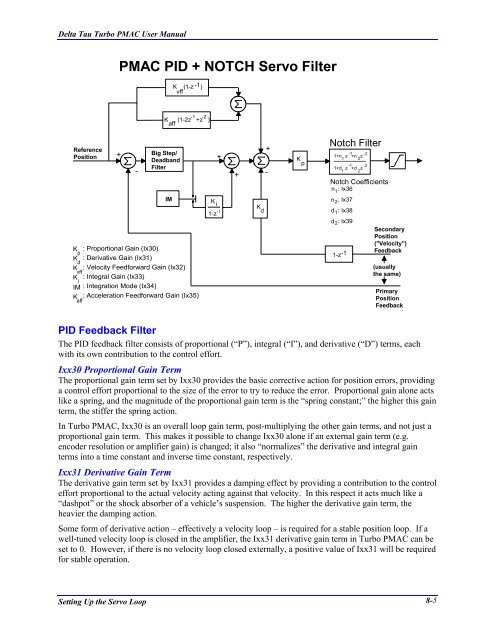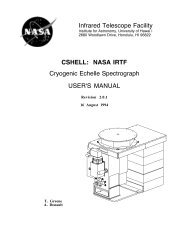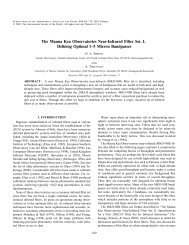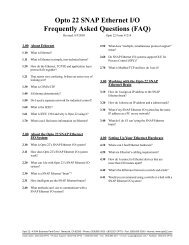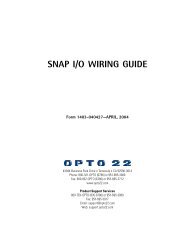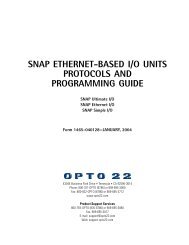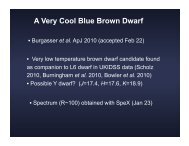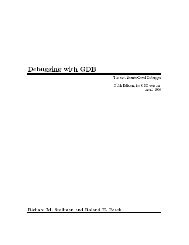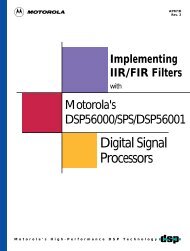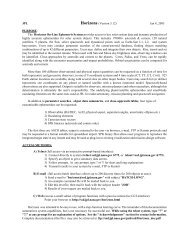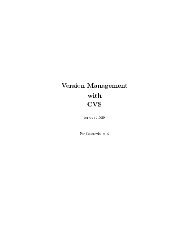- Page 1 and 2:
^1 USER MANUAL ^2 Turbo PMAC ^3 Pro
- Page 3 and 4:
Delta Tau Turbo PMAC User Manual De
- Page 5 and 6:
Delta Tau Turbo PMAC User Manual PR
- Page 7 and 8:
Delta Tau Turbo PMAC User Manual 1.
- Page 9 and 10:
Delta Tau Turbo PMAC User Manual TU
- Page 11 and 12:
Delta Tau Turbo PMAC User Manual Ho
- Page 13 and 14:
Delta Tau Turbo PMAC User Manual
- Page 15 and 16:
Delta Tau Turbo PMAC User Manual in
- Page 17 and 18:
Delta Tau Turbo PMAC User Manual
- Page 19 and 20:
Delta Tau Turbo PMAC User Manual
- Page 21 and 22:
Delta Tau Turbo PMAC User Manual no
- Page 23 and 24:
Delta Tau Turbo PMAC User Manual Tu
- Page 25 and 26:
Delta Tau Turbo PMAC User Manual 2.
- Page 27 and 28:
Delta Tau Turbo PMAC User Manual TU
- Page 29 and 30:
Delta Tau Turbo PMAC User Manual av
- Page 31 and 32:
Delta Tau Turbo PMAC User Manual Us
- Page 33 and 34:
Delta Tau Turbo PMAC User Manual Mo
- Page 35 and 36:
Delta Tau Turbo PMAC User Manual
- Page 37 and 38:
Delta Tau Turbo PMAC User Manual 24
- Page 39 and 40:
Delta Tau Turbo PMAC User Manual Th
- Page 41 and 42:
Delta Tau Turbo PMAC User Manual Re
- Page 43 and 44:
Delta Tau Turbo PMAC User Manual I7
- Page 45 and 46:
Delta Tau Turbo PMAC User Manual Re
- Page 47 and 48:
Delta Tau Turbo PMAC User Manual 1.
- Page 49 and 50:
Delta Tau Turbo PMAC User Manual 3.
- Page 51 and 52:
Delta Tau Turbo PMAC User Manual TA
- Page 53 and 54:
Delta Tau Turbo PMAC User Manual Au
- Page 55 and 56:
Delta Tau Turbo PMAC User Manual Ad
- Page 57 and 58:
Delta Tau Turbo PMAC User Manual Fo
- Page 59 and 60:
Delta Tau Turbo PMAC User Manual co
- Page 61 and 62:
Delta Tau Turbo PMAC User Manual No
- Page 63 and 64:
Delta Tau Turbo PMAC User Manual 4.
- Page 65 and 66:
Delta Tau Turbo PMAC User Manual SE
- Page 67 and 68:
Delta Tau Turbo PMAC User Manual Te
- Page 69 and 70:
Delta Tau Turbo PMAC User Manual Tu
- Page 71 and 72:
Delta Tau Turbo PMAC User Manual Ha
- Page 73 and 74:
Delta Tau Turbo PMAC User Manual Fo
- Page 75 and 76:
Delta Tau Turbo PMAC User Manual A
- Page 77 and 78:
Delta Tau Turbo PMAC User Manual Hi
- Page 79 and 80:
Delta Tau Turbo PMAC User Manual Mo
- Page 81 and 82:
Delta Tau Turbo PMAC User Manual Tu
- Page 83 and 84:
Delta Tau Turbo PMAC User Manual PF
- Page 85 and 86:
Delta Tau Turbo PMAC User Manual Ax
- Page 87 and 88:
Delta Tau Turbo PMAC User Manual Fo
- Page 89 and 90:
Delta Tau Turbo PMAC User Manual 5.
- Page 91 and 92:
Delta Tau Turbo PMAC User Manual BA
- Page 93 and 94:
Delta Tau Turbo PMAC User Manual In
- Page 95 and 96:
Delta Tau Turbo PMAC User Manual Fl
- Page 97 and 98:
Delta Tau Turbo PMAC User Manual da
- Page 99 and 100:
Delta Tau Turbo PMAC User Manual va
- Page 101 and 102:
Delta Tau Turbo PMAC User Manual PM
- Page 103 and 104:
Delta Tau Turbo PMAC User Manual Th
- Page 105 and 106:
Delta Tau Turbo PMAC User Manual cr
- Page 107 and 108:
Delta Tau Turbo PMAC User Manual Th
- Page 109 and 110:
Delta Tau Turbo PMAC User Manual 6.
- Page 111 and 112:
Delta Tau Turbo PMAC User Manual SE
- Page 113 and 114:
Delta Tau Turbo PMAC User Manual MA
- Page 115 and 116:
Delta Tau Turbo PMAC User Manual In
- Page 117 and 118:
Delta Tau Turbo PMAC User Manual PM
- Page 119 and 120:
Delta Tau Turbo PMAC User Manual Th
- Page 121 and 122:
Delta Tau Turbo PMAC User Manual On
- Page 123 and 124:
Delta Tau Turbo PMAC User Manual Ix
- Page 125 and 126:
Delta Tau Turbo PMAC User Manual
- Page 127 and 128:
Delta Tau Turbo PMAC User Manual PW
- Page 129 and 130:
Delta Tau Turbo PMAC User Manual
- Page 131 and 132:
Delta Tau Turbo PMAC User Manual If
- Page 133 and 134:
Delta Tau Turbo PMAC User Manual Fi
- Page 135 and 136: Delta Tau Turbo PMAC User Manual Co
- Page 137 and 138: Delta Tau Turbo PMAC User Manual Ha
- Page 139 and 140: Delta Tau Turbo PMAC User Manual Si
- Page 141 and 142: Delta Tau Turbo PMAC User Manual If
- Page 143 and 144: Delta Tau Turbo PMAC User Manual Ca
- Page 145 and 146: Delta Tau Turbo PMAC User Manual No
- Page 147 and 148: Delta Tau Turbo PMAC User Manual Ea
- Page 149 and 150: Delta Tau Turbo PMAC User Manual EN
- Page 151 and 152: Delta Tau Turbo PMAC User Manual Mo
- Page 153 and 154: Delta Tau Turbo PMAC User Manual Fi
- Page 155 and 156: Delta Tau Turbo PMAC User Manual Se
- Page 157 and 158: Delta Tau Turbo PMAC User Manual Si
- Page 159 and 160: Delta Tau Turbo PMAC User Manual Cu
- Page 161 and 162: Delta Tau Turbo PMAC User Manual Co
- Page 163 and 164: Delta Tau Turbo PMAC User Manual 7.
- Page 165 and 166: Delta Tau Turbo PMAC User Manual SE
- Page 167 and 168: Delta Tau Turbo PMAC User Manual Se
- Page 169 and 170: Delta Tau Turbo PMAC User Manual En
- Page 171 and 172: Delta Tau Turbo PMAC User Manual Co
- Page 173 and 174: Delta Tau Turbo PMAC User Manual ac
- Page 175 and 176: Delta Tau Turbo PMAC User Manual
- Page 177 and 178: Delta Tau Turbo PMAC User Manual Th
- Page 179 and 180: Delta Tau Turbo PMAC User Manual Ty
- Page 181 and 182: Delta Tau Turbo PMAC User Manual 8.
- Page 183 and 184: Delta Tau Turbo PMAC User Manual SE
- Page 185: Delta Tau Turbo PMAC User Manual Pu
- Page 189 and 190: Delta Tau Turbo PMAC User Manual Ac
- Page 191 and 192: Delta Tau Turbo PMAC User Manual Fi
- Page 193 and 194: Delta Tau Turbo PMAC User Manual Ix
- Page 195 and 196: Delta Tau Turbo PMAC User Manual L(
- Page 197 and 198: Delta Tau Turbo PMAC User Manual Ix
- Page 199 and 200: Delta Tau Turbo PMAC User Manual Th
- Page 201 and 202: Delta Tau Turbo PMAC User Manual +
- Page 203 and 204: Delta Tau Turbo PMAC User Manual Tu
- Page 205 and 206: Delta Tau Turbo PMAC User Manual
- Page 207 and 208: Delta Tau Turbo PMAC User Manual Re
- Page 209 and 210: Delta Tau Turbo PMAC User Manual th
- Page 211 and 212: Delta Tau Turbo PMAC User Manual P2
- Page 213 and 214: Delta Tau Turbo PMAC User Manual If
- Page 215 and 216: Delta Tau Turbo PMAC User Manual Wr
- Page 217 and 218: Delta Tau Turbo PMAC User Manual ;*
- Page 219 and 220: Delta Tau Turbo PMAC User Manual As
- Page 221 and 222: Delta Tau Turbo PMAC User Manual or
- Page 223 and 224: Delta Tau Turbo PMAC User Manual 9.
- Page 225 and 226: Delta Tau Turbo PMAC User Manual MO
- Page 227 and 228: Delta Tau Turbo PMAC User Manual or
- Page 229 and 230: Delta Tau Turbo PMAC User Manual De
- Page 231 and 232: Delta Tau Turbo PMAC User Manual If
- Page 233 and 234: Delta Tau Turbo PMAC User Manual di
- Page 235 and 236: Delta Tau Turbo PMAC User Manual Mo
- Page 237 and 238:
Delta Tau Turbo PMAC User Manual Ho
- Page 239 and 240:
Delta Tau Turbo PMAC User Manual 10
- Page 241 and 242:
Delta Tau Turbo PMAC User Manual TU
- Page 243 and 244:
Delta Tau Turbo PMAC User Manual Co
- Page 245 and 246:
Delta Tau Turbo PMAC User Manual No
- Page 247 and 248:
Delta Tau Turbo PMAC User Manual In
- Page 249 and 250:
Delta Tau Turbo PMAC User Manual AC
- Page 251 and 252:
Delta Tau Turbo PMAC User Manual Bi
- Page 253 and 254:
Delta Tau Turbo PMAC User Manual 11
- Page 255 and 256:
Delta Tau Turbo PMAC User Manual MA
- Page 257 and 258:
Delta Tau Turbo PMAC User Manual An
- Page 259 and 260:
Delta Tau Turbo PMAC User Manual In
- Page 261 and 262:
Delta Tau Turbo PMAC User Manual 2
- Page 263 and 264:
Delta Tau Turbo PMAC User Manual De
- Page 265 and 266:
Delta Tau Turbo PMAC User Manual
- Page 267 and 268:
Delta Tau Turbo PMAC User Manual Co
- Page 269 and 270:
Delta Tau Turbo PMAC User Manual 12
- Page 271 and 272:
Delta Tau Turbo PMAC User Manual EX
- Page 273 and 274:
Delta Tau Turbo PMAC User Manual Ve
- Page 275 and 276:
Delta Tau Turbo PMAC User Manual Tw
- Page 277 and 278:
Delta Tau Turbo PMAC User Manual Po
- Page 279 and 280:
Delta Tau Turbo PMAC User Manual No
- Page 281 and 282:
Delta Tau Turbo PMAC User Manual Th
- Page 283 and 284:
Delta Tau Turbo PMAC User Manual Al
- Page 285 and 286:
Delta Tau Turbo PMAC User Manual Th
- Page 287 and 288:
Delta Tau Turbo PMAC User Manual 13
- Page 289 and 290:
Delta Tau Turbo PMAC User Manual TU
- Page 291 and 292:
Delta Tau Turbo PMAC User Manual Ba
- Page 293 and 294:
Delta Tau Turbo PMAC User Manual Fi
- Page 295 and 296:
Delta Tau Turbo PMAC User Manual P6
- Page 297 and 298:
Delta Tau Turbo PMAC User Manual is
- Page 299 and 300:
Delta Tau Turbo PMAC User Manual If
- Page 301 and 302:
Delta Tau Turbo PMAC User Manual An
- Page 303 and 304:
Delta Tau Turbo PMAC User Manual Ar
- Page 305 and 306:
Delta Tau Turbo PMAC User Manual Wh
- Page 307 and 308:
Delta Tau Turbo PMAC User Manual I6
- Page 309 and 310:
Delta Tau Turbo PMAC User Manual re
- Page 311 and 312:
Delta Tau Turbo PMAC User Manual 14
- Page 313 and 314:
Delta Tau Turbo PMAC User Manual SE
- Page 315 and 316:
Delta Tau Turbo PMAC User Manual Th
- Page 317 and 318:
Delta Tau Turbo PMAC User Manual Ro
- Page 319 and 320:
Delta Tau Turbo PMAC User Manual No
- Page 321 and 322:
Delta Tau Turbo PMAC User Manual Q8
- Page 323 and 324:
Delta Tau Turbo PMAC User Manual Cr
- Page 325 and 326:
Delta Tau Turbo PMAC User Manual If
- Page 327 and 328:
Delta Tau Turbo PMAC User Manual EN
- Page 329 and 330:
Delta Tau Turbo PMAC User Manual Co
- Page 331 and 332:
Delta Tau Turbo PMAC User Manual 15
- Page 333 and 334:
Delta Tau Turbo PMAC User Manual WR
- Page 335 and 336:
Delta Tau Turbo PMAC User Manual IN
- Page 337 and 338:
Delta Tau Turbo PMAC User Manual CO
- Page 339 and 340:
Delta Tau Turbo PMAC User Manual Ac
- Page 341 and 342:
Delta Tau Turbo PMAC User Manual V
- Page 343 and 344:
Delta Tau Turbo PMAC User Manual Li
- Page 345 and 346:
Delta Tau Turbo PMAC User Manual Ci
- Page 347 and 348:
Delta Tau Turbo PMAC User Manual or
- Page 349 and 350:
Delta Tau Turbo PMAC User Manual Wh
- Page 351 and 352:
Delta Tau Turbo PMAC User Manual Th
- Page 353 and 354:
Delta Tau Turbo PMAC User Manual co
- Page 355 and 356:
Delta Tau Turbo PMAC User Manual V
- Page 357 and 358:
Delta Tau Turbo PMAC User Manual PV
- Page 359 and 360:
Delta Tau Turbo PMAC User Manual Ve
- Page 361 and 362:
Delta Tau Turbo PMAC User Manual ma
- Page 363 and 364:
Delta Tau Turbo PMAC User Manual If
- Page 365 and 366:
Delta Tau Turbo PMAC User Manual Ou
- Page 367 and 368:
Delta Tau Turbo PMAC User Manual Fa
- Page 369 and 370:
Delta Tau Turbo PMAC User Manual Ho
- Page 371 and 372:
Delta Tau Turbo PMAC User Manual al
- Page 373 and 374:
Delta Tau Turbo PMAC User Manual Th
- Page 375 and 376:
Delta Tau Turbo PMAC User Manual Th
- Page 377 and 378:
Delta Tau Turbo PMAC User Manual Tu
- Page 379 and 380:
Delta Tau Turbo PMAC User Manual 10
- Page 381 and 382:
Delta Tau Turbo PMAC User Manual If
- Page 383 and 384:
Delta Tau Turbo PMAC User Manual No
- Page 385 and 386:
Delta Tau Turbo PMAC User Manual Ve
- Page 387 and 388:
Delta Tau Turbo PMAC User Manual ma
- Page 389 and 390:
Delta Tau Turbo PMAC User Manual No
- Page 391 and 392:
Delta Tau Turbo PMAC User Manual Se
- Page 393 and 394:
Delta Tau Turbo PMAC User Manual Se
- Page 395 and 396:
Delta Tau Turbo PMAC User Manual Ba
- Page 397 and 398:
Delta Tau Turbo PMAC User Manual Th
- Page 399 and 400:
Delta Tau Turbo PMAC User Manual pr
- Page 401 and 402:
Delta Tau Turbo PMAC User Manual ha
- Page 403 and 404:
Delta Tau Turbo PMAC User Manual G9
- Page 405 and 406:
Delta Tau Turbo PMAC User Manual Sw
- Page 407 and 408:
Delta Tau Turbo PMAC User Manual N0
- Page 409 and 410:
Delta Tau Turbo PMAC User Manual It
- Page 411 and 412:
Delta Tau Turbo PMAC User Manual PM
- Page 413 and 414:
Delta Tau Turbo PMAC User Manual Ne
- Page 415 and 416:
Delta Tau Turbo PMAC User Manual 16
- Page 417 and 418:
Delta Tau Turbo PMAC User Manual SY
- Page 419 and 420:
Delta Tau Turbo PMAC User Manual Ch
- Page 421 and 422:
Delta Tau Turbo PMAC User Manual A
- Page 423 and 424:
Delta Tau Turbo PMAC User Manual St
- Page 425 and 426:
Delta Tau Turbo PMAC User Manual Ho
- Page 427 and 428:
Delta Tau Turbo PMAC User Manual CL
- Page 429 and 430:
Delta Tau Turbo PMAC User Manual Th
- Page 431 and 432:
Delta Tau Turbo PMAC User Manual Th
- Page 433 and 434:
Delta Tau Turbo PMAC User Manual Fo
- Page 435 and 436:
Delta Tau Turbo PMAC User Manual P1
- Page 437 and 438:
Delta Tau Turbo PMAC User Manual M1
- Page 439 and 440:
Delta Tau Turbo PMAC User Manual Se
- Page 441 and 442:
Delta Tau Turbo PMAC User Manual Th
- Page 443 and 444:
Delta Tau Turbo PMAC User Manual Th
- Page 445 and 446:
Delta Tau Turbo PMAC User Manual 17
- Page 447 and 448:
Delta Tau Turbo PMAC User Manual WR
- Page 449 and 450:
Delta Tau Turbo PMAC User Manual Ex
- Page 451 and 452:
Delta Tau Turbo PMAC User Manual Th
- Page 453 and 454:
Delta Tau Turbo PMAC User Manual In
- Page 455 and 456:
Delta Tau Turbo PMAC User Manual co
- Page 457 and 458:
Delta Tau Turbo PMAC User Manual Op
- Page 459 and 460:
Delta Tau Turbo PMAC User Manual On
- Page 461 and 462:
Delta Tau Turbo PMAC User Manual 18
- Page 463 and 464:
Delta Tau Turbo PMAC User Manual WR
- Page 465 and 466:
Delta Tau Turbo PMAC User Manual Th
- Page 467 and 468:
Delta Tau Turbo PMAC User Manual Re
- Page 469 and 470:
Delta Tau Turbo PMAC User Manual PI
- Page 471 and 472:
Delta Tau Turbo PMAC User Manual WD
- Page 473 and 474:
Delta Tau Turbo PMAC User Manual PC
- Page 475 and 476:
Delta Tau Turbo PMAC User Manual IF
- Page 477 and 478:
Delta Tau Turbo PMAC User Manual We
- Page 479 and 480:
Delta Tau Turbo PMAC User Manual YE
- Page 481 and 482:
Delta Tau Turbo PMAC User Manual ad
- Page 483 and 484:
Delta Tau Turbo PMAC User Manual Re
- Page 485 and 486:
Delta Tau Turbo PMAC User Manual DP
- Page 487 and 488:
Delta Tau Turbo PMAC User Manual Ad
- Page 489 and 490:
Delta Tau Turbo PMAC User Manual ad
- Page 491 and 492:
Delta Tau Turbo PMAC User Manual Re
- Page 493 and 494:
Delta Tau Turbo PMAC User Manual Th
- Page 495 and 496:
Delta Tau Turbo PMAC User Manual 3.
- Page 497 and 498:
Delta Tau Turbo PMAC User Manual st
- Page 499 and 500:
Delta Tau Turbo PMAC User Manual Th
- Page 501 and 502:
Delta Tau Turbo PMAC User Manual VR
- Page 503 and 504:
Delta Tau Turbo PMAC User Manual VR
- Page 505 and 506:
Delta Tau Turbo PMAC User Manual mu
- Page 507 and 508:
Delta Tau Turbo PMAC User Manual Se
- Page 509:
Delta Tau Turbo PMAC User Manual DU


